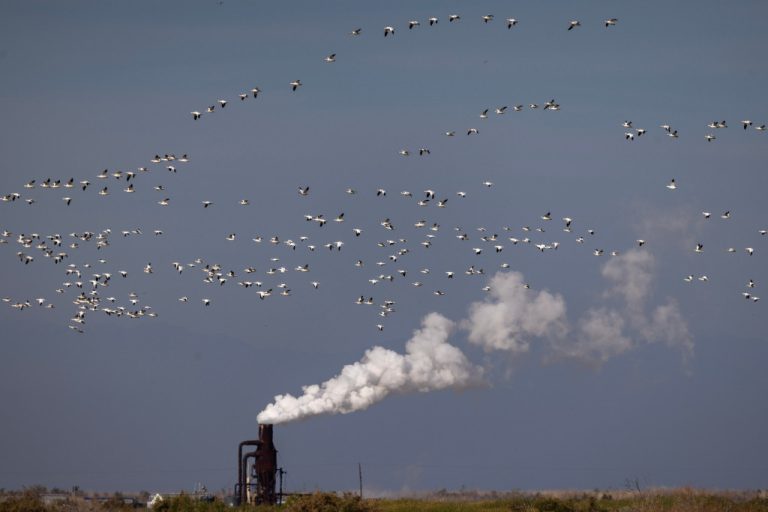The ongoing meeting of the United Nations Environment Assembly in Nairobi, Kenya, has revealed sharp divisions between countries over the risks associated with geoengineering projects. Energy generated from renewable sources is expected to increase rapidly, putting downward pressure on energy prices and impacting major producers. Anger is growing within the developing world over climate change and what they see as a woefully inadequate response by rich countries that account for the majority of the causes of climate change. The early signs of how climate change is driving widespread transformations in the international system are clearly visible.
However, in American policy discussions, attention to the national security consequences of climate change remains patchy. Over the past three years, the US government, and the Department of Defense in particular, has developed strategies and assessments regarding the national security risks of climate change and how to adapt to them. These documents were informed by substantial research in the broader US policy community on issues such as threats to military installations and operations from extreme weather events, and to a lesser extent the potential for shifts in climate to drive migration or conflicts over resources. These topics are certainly important, but they are primarily examples of research on direct responses to extreme weather events. There have been some thoughtful assessments of the broader risks to US national security from climate change, but the consequences of this action do not yet appear to be driving government policy.
This is worrying, because risks from direct responses to extreme weather events may be just the tip of the (fast-melting) iceberg. As we noted in our recent report, climate change has at least two characteristics that are likely to trigger second- and third-order political and social responses, the effects of which on U.S. strategic interests may be much greater than those that occur as a direct response to climate change. Individual extreme weather events.
First, because climate change is expected to lead to a permanent and long-term transformation of the environment, it is likely to prompt countries and societies to take increasingly aggressive steps to mitigate and adapt to its impacts. In previous eras, a bad hurricane season would not have sparked serious interest in the possibility of dimming the sun, but the threat of sustained increases in the frequency and intensity of extreme weather events is now driving these conversations. As the impacts of climate change accelerate in the coming years, we will need to reconsider our assumptions about the types of actions countries might be willing to take in response, especially since the risks that climate change poses to many countries will be existential.
Second, the fact that climate change – unlike historical storms, droughts or floods – is caused by human activity, and by some people a little more than others, has the potential to generate more explosive political and social responses to climate change. The costs it imposes on some people, but not on others, are rising. This means that, unlike historical natural disasters, disasters caused by climate change are someone's fault. The United States is the largest historical contributor to carbon dioxide emissions, at about 25% of the historical global total. While China has surpassed the United States as the largest annual emitter of carbon dioxide, the United States remains one of the current world leaders in emissions.
The fact that climate change can be attributed to specific actors is likely to imbue responses to it with a political and emotional significance that previous responses to natural disasters have lacked. Anger, resentment, and frustration toward big polluting nations or corporations may impact geopolitical alliances, reshape alliances around climate considerations as well as traditional security threats, or drive societal-level responses such as boycotts and divestments of emissions-related companies. It may even lead to an increase in environmental terrorism.
The extent of these risks and their implications for US national security remain uncertain. This is partly because the success of international efforts to reduce greenhouse gas emissions, which in turn will reduce the extent of climate change, is also unclear. But the degree of risk these changes pose to US national security has also not been studied, which likely obscures the risks that may accompany policy decisions on climate and non-climate issues today.
Areas that need further research are extensive. Some allies and partners that are vital to US bases and access in the Indo-Pacific region in particular, may be disproportionately negatively affected by climate change, and as a result, policies related to, or to which China appears opposed to a partnership with the United States, may change. . Long-term plans to deter PRC aggression may not reflect how China's development of alternative energy sources could reduce the effectiveness of some tools of statecraft, such as blockades, that can be used to deter armed aggression. Adaptation needs will differ, which may differentiate countries in multilateral institutions, such as the European Union, as they face very different investment needs for future adaptation.
In short, climate change may lead to additional and more fundamental changes in the future strategic environment, which in turn may require more fundamental shifts in U.S. policy to address them. In order to better understand these and many other potential changes and how they guide American policy choices, it will be important to broaden the scope of and deepen interest in the issues under investigation.
Photo: Snow geese fly near Hell's Thermal Resources' Hell's Kitchen lithium and renewable energy plant, the first of several to be built despite the threat of a lawsuit to halt or decommission it on February 15, 2024 near Niland, California. (Photo by David McNew/Getty Images)

